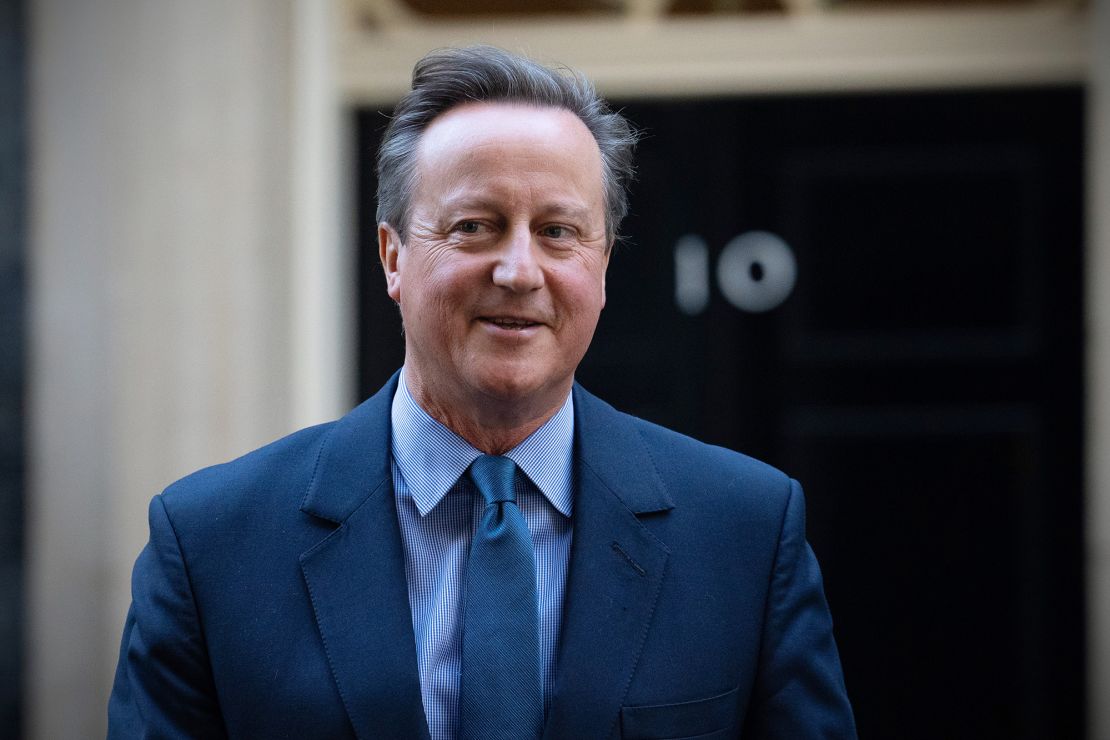David Cameron? Remember him? The honest answer for many in the EU leadership would be “How could we ever forget him; however hard we have tried”. Yes, the man who subjected the European Council to an extended period when he seemed to think the UK’s concerns were the only subject they should ever consider is back. What should they make of the former Prime Minister’s appointment as Britain’s Foreign Secretary, asks Political Editor Nick Powell.
His interminable whinges over dinner in Brussels enabled David Cameron to claim that the European Council had listened to Britain’s concerns, even as the rest of the EU28 kept other issues at the top of their agenda. He himself referred to the Council meetings as “another day in paradise”. An example perhaps of the famed British sense of humour as he turned mealtimes into hell.
It was all in vain of course. He bizarrely thought that telling the voters back home he was in a constant struggle with those beastly continentals would somehow persuade his electorate to back the UK remaining in the European Union. He had promised the referendum when he was firmly in ‘party before country’ mode, a Conservative leader trying to buy off the anti-European faction; not a Prime Minister making a positive case for British membership, not even with all those opt-outs and rebates that the UK enjoyed.
As Foreign Secretary, David Cameron will at least formally be in charge of the UK’s relationship with the European Union, a prospect officially welcomed by the European Commission this morning. Though perhaps ‘welcomed’ is too strong a term. Vice President Maroš Šefčovič seemed to stick to the maxim that if you cannot think of something nice to say about someone, say nothing.
He tweeted “I congratulate [the previous Foreign Secretary] James Cleverly on his appointment as Home Secretary. I thank him for all the good and constructive work we achieved together with the Windsor Framework and for putting relations back on track. I look forward to continuing this work with David Cameron”.
The positivity was all about Cleverly, who under Prime Minister Rishi Sunak, has made at least a start at undoing some of the damage that ultimately stems from David Cameron’s misjudgment. It sends a message that there is more repair work to be done and we can only hope that the new Foreign Secretary’s ineptitude as Prime Minister is not a guide to how he will perform this time round.
Cameron and Sunak now have a year left before an election that the Conservatives are on course to lose. Probably they will try to avoid any big bust-ups -or break-throughs- with the EU. Once again it is all about party management and the new Foreign Secretary will try to do what he once tried and failed to convince his fellow Tories: “Stop banging on about Europe”.
There is little doubt that Cameron will favour a close relationship with the United States, a focus on NATO as the UK’s most important international partnership and continued support for Ukraine. The Israel-Gaza conflict will of course be an early test, as it is proving for anyone who aspires to be considered a statesman.
His post-Prime Ministerial career as a lobbyist and speech-making raises some questions. His earnings as an adviser to Greensill Capital have been estimated at $10 million, a figure dwarfed by the losses sustained by the British taxpayer after the company collapsed. Recently he has been promoting a project to develop the port of Colombo in Sri Lanka. He insists he has been acting on behalf of that country, rather than the Chinese investors in the project. He remains associated with a ‘golden age’ in UK-China relations when he was Prime Minister.
But like all the ministerial appointments announced by Sunak, Cameron’s unexpected return to government is part of an election campaign that is going to last for a year. Bringing back the former Prime Minister is a signal that Conservatives from all wings of the party should unite behind their leader. The immediate cause of the reshuffle was the sacking of Suella Braverman, a Home Secretary whose political posturing made it clear that her focus was on the party leadership contest that would follow electoral defeat.
It could be seen as a return to when the Conservative party was run by a ‘magic circle’ of ‘men in suits’. Having quit as an MP, Cameron will sit in the House of Lords, the first Foreign Secretary to do so since Lord Carrington was appointed by Margaret Thatcher. The last Prime Minister to subsequently serve under another one was Sir Alec Douglas-Home, who was Edward Heath’s Foreign Secretary.
Cameron, Carrington and Douglas-Home were all products of Eton, England’s most elite fee-paying school. But perhaps the real precedent is the one set by the more humbly-educated Edward Heath. In 1970, he produced an electoral swing so great that he replaced an absolute Labour majority in the House of Commons with a Conservative one.
It’s a trick that no leader of either party has since pulled off at a single election, But Labour’s Sir Keir Starmer remains on course to do so next year. It will take more than the return of David Cameron to stop him.




















